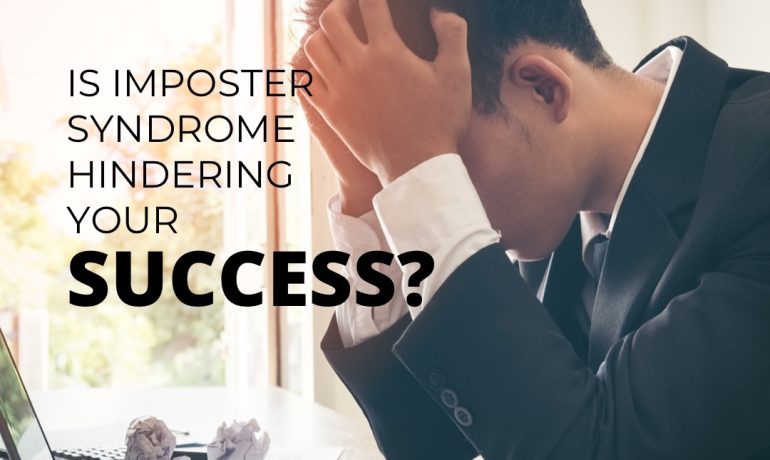If imposter syndrome is affecting you, you’re not alone. In this article we talk about what imposter syndrome is, some of its effects, and how to deal with imposter syndrome.
Imposter syndrome is the internal feeling that you are not as competent as others perceive you to be. You might doubt your product or service for this reason. Or you might think you don’t deserve the prices you charge to customers, possibly because the work comes so easily to you.
Wikipedia defines Impostor syndrome as “a psychological occurrence in which people doubt their skills, talents, or accomplishments and have a persistent internalized fear of being exposed as frauds.”
Imposter syndrome is something that impacts new and experienced professionals alike. It affects entrepreneurs, freelancers, as well as employees. Research shows that 84% of entrepreneurs and small business owners, 75% of executive women, and 58% of tech employees at major companies like Amazon, Microsoft and Google, experience imposter syndrome. 60% of women put off starting a business due to imposter syndrome.
Why Do People Get Imposter Syndrome?
One reason for imposter syndrome may be that a person may have achieved such mastery at what they do, I.e., the work they do comes so easily to them, they feel they haven’t tried at all or put in any effort. We are used to the idea of getting paid by the hour, especially people coming from an employee background. For this reason, when people charge a high flat rate for work they put little effort in delivering, they may feel they are being unfair.
Another reason may be that your mastery is the result of talent / God-given abilities. It’s important to acknowledge and be grateful for the Gifts given by God, whether it is talent, opportunities, or luck.
“What’s talent but the ability to get away with something?”
― Tennessee Williams
Yet another reason for imposter syndrome is a negative environment. If your environment makes you feel negative or doubtful of yourself, it can make you lose confidence in your skills and result in imposter syndrome.
Negative Effects of Imposter Syndrome.
Imposter syndrome can have a number of negative effects including stress and anxiety; frustration, shame, and low self-confidence; and social anxiety and depression. Imposter syndrome can negatively affect relationships and work and keep you from reaching for new levels of accomplishments and new opportunities.
If you are getting feelings of imposter syndrome, consider the years of experience it took you to reach your current level and the value you bring to your clients, irrespective of the time it takes you to deliver. Clients pay you for the value and results you bring them, not the hours you work. Being paid for expertise and results instead of time is what makes a consultant and business owner different from a minimum wage worker. Furthermore, even talent requires years of hard work and practice.
“Never, ever, ever, write off anything you’ve achieved as merely being lucky. You are not lucky: you are hard-working and capable. Don’t ever question it.”
― Charlene Walters
Tips to Deal with Imposter Syndrome.
- It’s important to consider the effect of your work, the value it brings your client. If a job brings a $100,000 value to the client, you shouldn’t feel bad for charging $5000 or $10000. Not only that, but usually the work results in ongoing income, not just one time. So that marketing campaign you created or the consultation you provided might bring in multiple $100K income while you charged only one time.
- Surround yourself with information that reminds you your work’s worth. If you see others charging $10,000 for similar work, you won’t be as affected by imposter syndrome because you will have something to gauge your work with.
- Surround yourself with people who believe in you, appreciate your work, and encourage you.
- Listen to motivational content and positive affirmations that push away negative thoughts and self-doubts.
For more about imposter syndrome and other challenges entrepreneurs and self-employed individuals face, check out Radeya Global Founder’s book Self Help for Entrepreneurs & People Working from Home. Self Help for Entrepreneurs & People Working from Home is available from Amazon in ebook, paperback and hardcover (https://www.amazon.com/dp/B09XZH8M21 ).
Written by Kokab Rahman.
Follow Kokab Rahman on LinkedIn, Instagram, Twitter.
© Copyright Radeya Global. May be reproduced as long as the content is unchanged and a link to the original post is provided. Radeya Global Blog may not be reproduced in its entirety.



